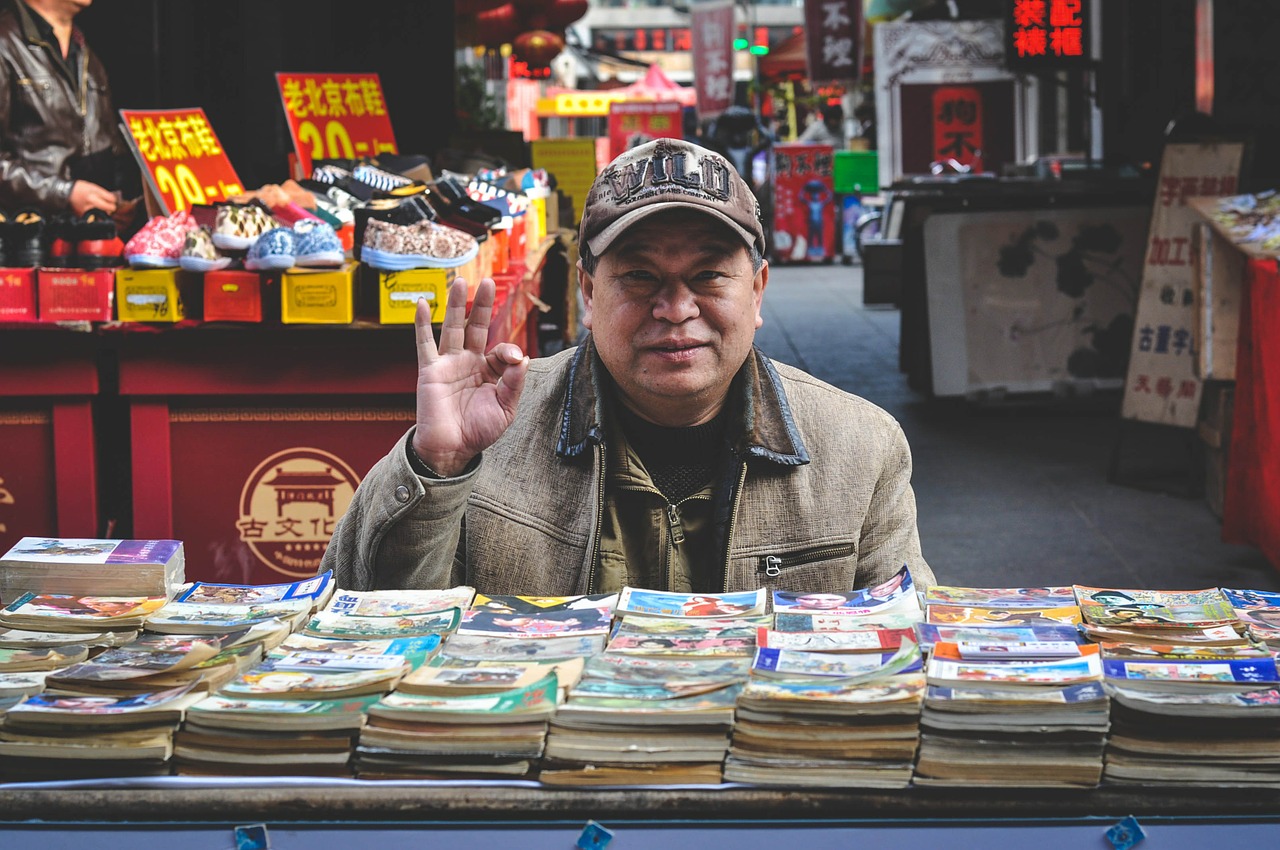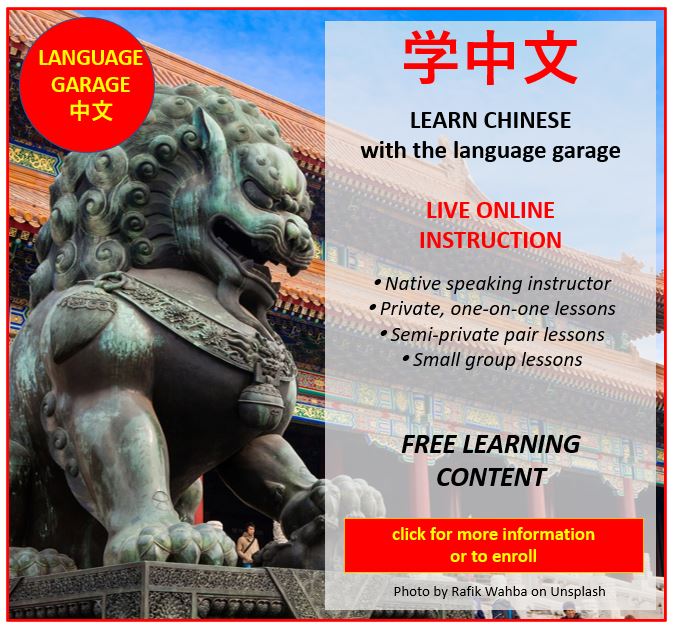Image by TravelCoffeeBook from Pixabay
In this post we’ll learn some basic Chinese vocabulary and grammar that you can use to describe people.
漂亮! piào liang! Beautiful!
Let’s start with some basic adjectives that you can use to describe people’s physical characteristics: 高 gāo tall; 矮 ǎi short; 年轻 nián qīng young; 老 lǎo old; 胖 pàng fat; 瘦 shòu thin; 漂亮 piàoliang beautiful; 难看 nánkàn ugly. Let’s see some examples:
- 这个女人很高/瘦。
Zhè gè nǚ rén hěn gāo/shòu.
The woman is tall/ thin. - 她是个很高的女人。
Tā shìgè hěn gāo de nǚrén.
She is a very tall woman. - 这个男人很矮/胖。
Zhè gè nán rén hěn ǎi / pàng.
The man is short/ fat.
- 他是个很矮的人。
Tā shìgè hěn ǎi de rén.
He is a very short man. - 我的爷爷/奶奶老了。
我的外公/外婆老了。
Wǒ de yé ye / nǎi nai lǎo le.
Wǒ de wài gōng / wài pó lǎo le.
My grandfather/My grandmother is old. (paternal, maternal) - 这个男孩很小。
Zhè gè nán hái hěn xiǎo.
The boy is young. - 我们有一个年幼的儿子。
Wǒ men yǒu yí gè nián yòu de ér zi.
We have a young son.
GRAMMAR POINT! When you use an adjective in the formula “NOUN is ADJECTIVE” you don’t use be like you do in English, but rather 很 hěn. You may have seen 很 hěn translated as very; it can mean this, but in simple adjectival sentences like these, it has no meaning. It’s only used as a dummy linker between subject and adjective.
- 这个男孩很小。
Zhè gè nán hái hěn xiǎo.
The boy is young. - 她很瘦。
Tā hěn shòu.
She is thin. - 他很高。
Tā hěn gāo.
He is tall.
If you use an adjective before a noun (attributively, if you like grammatical terms), you often use a different linker in Chinese, 的 de. If you have 很 hěn in a construction like this, it does mean very.
- 漂亮的女孩
piàoliang de nǚhái
a pretty girl - 很高的女人
hěn gāo de nǚrén
a very tall woman - 一个很瘦的男孩
yīgè hěn shòu de nánhái
a very thin boy
If the adjective is monosyllabic, you don’t need to link it to the noun with 的 de. But if you add to the adjective, for instance with 非常 fēicháng very, you do need 的 de. Compare:
- 一个好人
yīgè hǎorén
a good person - 一个非常好的人
yīgè fēicháng hǎo de rén
a very good person
我很高兴!Wǒ hěn gāoxīng!I’m happy!
Now let’s see a few more adjectives that describe people’s moods or emotions or other non-physical characteristics: 高兴 gāo xìng happy; 难过 nán guò sad; 聪明 cōng ming intelligent; 笨 bèn foolish; 有趣 yǒu qù interesting; 受欢迎 shòu huān yíng popular; 运动型 yùn dòng xíng sporty, athletic; 懒 lǎn lazy; 强壮 qiáng zhuàng strong; 瘦弱 shòu ruò weak; 勇敢 yǒng gǎn brave; 害羞 hài xiū shy; 健谈 jiàn tán talkative; 安静 ān jìng quiet; 已婚 yǐ hūn married; 单身 dān shēn single; 友好 yǒu hǎo friendly, nice; 不友好 bù yǒu hǎo unfriendly, mean.
- 这个女人很聪明。
Zhège nǚrén hěn cōngmíng.
The woman is intelligent. - 这个男人很壮。
Zhè gè nán rén hěn zhuàng.
The man is strong. - 我姐姐/妹妹很友好/不友好。
wǒ jiě jie / mèi mei hěn yǒu hǎo / bù yǒu hǎo.
My (older/younger) sister is friendly/ unfriendly. - 我哥哥/弟弟很友好/不友好。
Wǒ gē ge / dì di hěn yǒu hǎo / bù yǒu hǎo.
My (older/younger) brother is friendly/mean. - 这个女孩很害羞。
Zhè gè nǚ hái hěn hài xiū.
The girl is shy. - 你现在心情是开心还是难过?
Nǐ xiàn zài xīn qíng shì kāi xīn hái shì nán guò?
Are you happy or sad? - 我们的老师很有意思。
Wǒ men de lǎo shī hěn yǒu yì sī.
Our teacher is interesting. - 她是一位流行歌手。
Tā shì yí wèi liú xíng gē shǒu.
She’s a popular singer. - 这位警察很勇敢。
Zhè wèi jǐng chá hěn yǒng gǎn.
The police officer is brave.
Do you want to learn Chinese?
Check out our other posts on Chinese language, culture, and more. And if you’re looking for convenient and affordable live Chinese lessons with a real teacher, check out The Language Garage. Our lessons are given online in a virtual classroom, so it doesn’t matter where you live or work – we can come to you. And we have flexible options, with a free trial so that you can decide if there’s a fit. Check us out!






